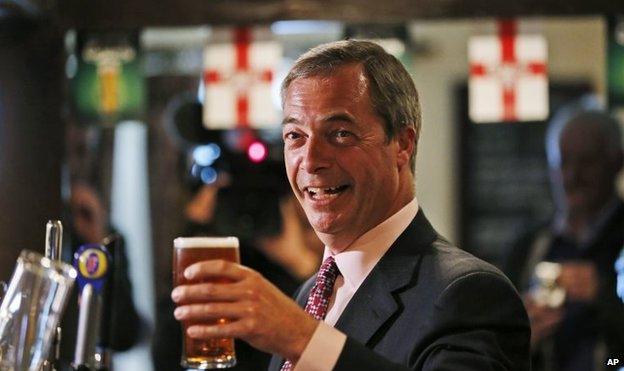UKIP – a party with the power to disrupt
- Published

If you pick up a newspaper tomorrow beaming out at you will be the face of Nigel Farage, frothing pint in hand. An image that says "we're the winners".
And yet, in what sense did UKIP win?
Not by electing the most councillors - the three main parties have many more.
Not by making the most gains - Labour's gains are almost double those made by UKIP.
Not by taking control of councils - they run no town or city halls.
Their victory was to complete the move from party of protest competitive only in European elections to one that is wounding the big three up and down the country.
Talk of winning Westminster seats no longer looks fanciful.
Already the Conservatives and Labour are wrestling with how to react. A few Eurosceptic Tories demand a pact. They won't get one but there will now be huge pressure on David Cameron to show how he intends to reform the EU and how he'll control the immigration that comes from it.
Ed Miliband, too, is under pressure - not least from Ed Balls and Yvette Cooper - to sharpen Labour's message on those same subjects - Europe and immigration.
As ever, Mr Farage sums this all up colourfully.
"The UKIP fox is in the Westminster hen house," he says.
UKIP have not turned into a party of power. They have though confirmed their power to disrupt.